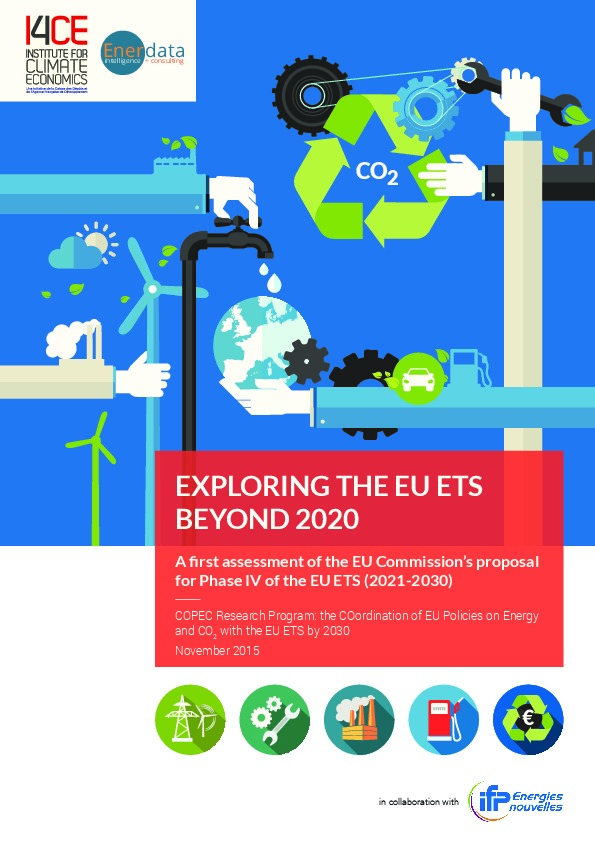Exploring the EU ETS beyond 2020: A first assessment of the EU Commission’s proposal for Phase IV of the EU ETS (2021-2030)
The report, produced jointly by I4CE – Institute for Climate Economics and Enerdata, and in collaboration with IFPen, provides new, factual, independent and quantified analysis on EU ETS operationality by 2030, to examine the necessary conditions to improve its environmental and economic effectiveness.
Launched in September 2014, the research program on the COordination of EU Policies on Energy and CO2 (COPEC) with the EU ETS by 2030, aims to prepare economic policymakers for the debate on the revision of the European Emissions Trading Scheme (EU ETS) in the framework of the 2030 Climate and Energy Package.
Over five chapters, the COPEC research program analyses five major challenges to the successful implementation of Phase IV of the EU ETS:
- Defining a CO2 reduction target in line with energy policies such as Renewables and Energy Efficiency,
- Implementing the Market Stability Reserve,
- Addressing carbon leakage risk through free allocation,
- Extending the EU ETS scope to include emissions from the road transport sector,
- Financing the low-carbon transition through various funding mechanisms based on auction revenues.
